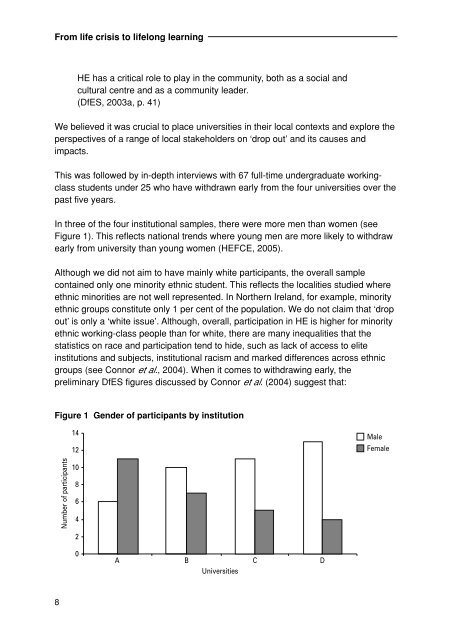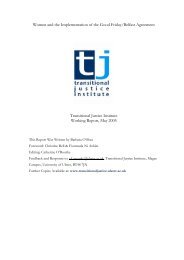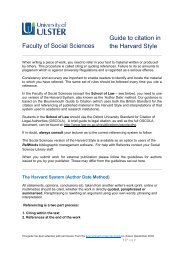From life crisis to lifelong learning: Rethinking working-class 'drop out'
From life crisis to lifelong learning: Rethinking working-class 'drop out'
From life crisis to lifelong learning: Rethinking working-class 'drop out'
Create successful ePaper yourself
Turn your PDF publications into a flip-book with our unique Google optimized e-Paper software.
<strong>From</strong> <strong>life</strong> <strong>crisis</strong> <strong>to</strong> <strong>life</strong>long <strong>learning</strong><br />
8<br />
HE has a critical role <strong>to</strong> play in the community, both as a social and<br />
cultural centre and as a community leader.<br />
(DfES, 2003a, p. 41)<br />
We believed it was crucial <strong>to</strong> place universities in their local contexts and explore the<br />
perspectives of a range of local stakeholders on ‘drop out’ and its causes and<br />
impacts.<br />
This was followed by in-depth interviews with 67 full-time undergraduate <strong>working</strong><strong>class</strong><br />
students under 25 who have withdrawn early from the four universities over the<br />
past five years.<br />
In three of the four institutional samples, there were more men than women (see<br />
Figure 1). This reflects national trends where young men are more likely <strong>to</strong> withdraw<br />
early from university than young women (HEFCE, 2005).<br />
Although we did not aim <strong>to</strong> have mainly white participants, the overall sample<br />
contained only one minority ethnic student. This reflects the localities studied where<br />
ethnic minorities are not well represented. In Northern Ireland, for example, minority<br />
ethnic groups constitute only 1 per cent of the population. We do not claim that ‘drop<br />
out’ is only a ‘white issue’. Although, overall, participation in HE is higher for minority<br />
ethnic <strong>working</strong>-<strong>class</strong> people than for white, there are many inequalities that the<br />
statistics on race and participation tend <strong>to</strong> hide, such as lack of access <strong>to</strong> elite<br />
institutions and subjects, institutional racism and marked differences across ethnic<br />
groups (see Connor et al., 2004). When it comes <strong>to</strong> withdrawing early, the<br />
preliminary DfES figures discussed by Connor et al. (2004) suggest that:<br />
Figure 1 Gender of participants by institution<br />
Number of participants<br />
14<br />
12<br />
10<br />
8<br />
6<br />
4<br />
2<br />
0<br />
A B C D<br />
Universities<br />
Male<br />
Female
















